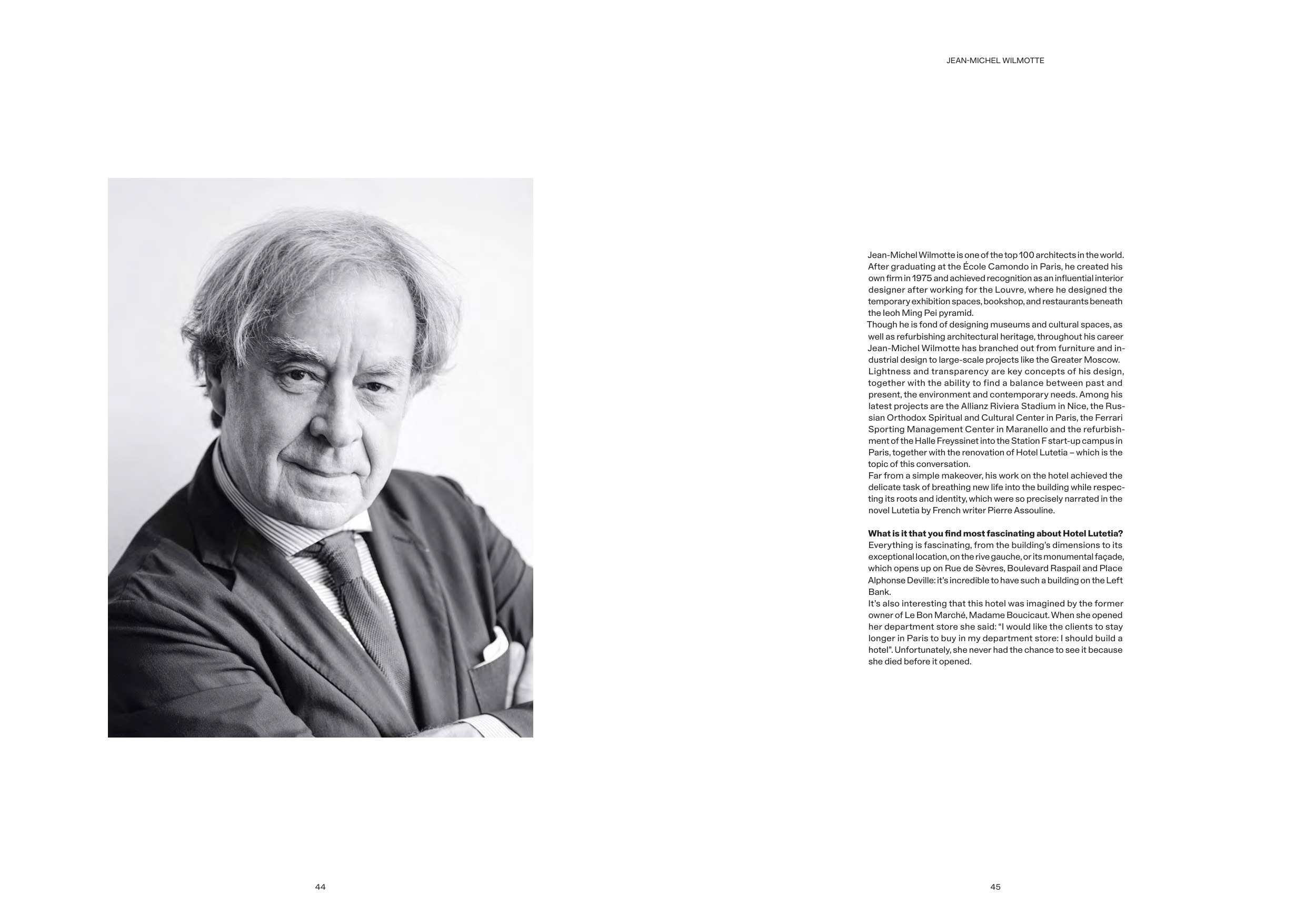44
45
JEAN-MICHEL WILMOTTE
Jean-Michel Wilmotte is one of the top 100 architects in the world.
After graduating at the École Camondo in Paris, he created his
own firm in 1975 and achieved recognition as an influential interior
designer after working for the Louvre, where he designed the
temporary exhibition spaces, bookshop, and restaurants beneath
the Ieoh Ming Pei pyramid.
Though he is fond of designing museums and cultural spaces, as
well as refurbishing architectural heritage, throughout his career
Jean-Michel Wilmotte has branched out from furniture and in-
dustrial design to large-scale projects like the Greater Moscow.
Lightness and transparency are key concepts of his design,
together with the ability to find a balance between past and
present, the environment and contemporary needs. Among his
latest projects are the Allianz Riviera Stadium in Nice, the Rus-
sian Orthodox Spiritual and Cultural Center in Paris, the Ferrari
Sporting Management Center in Maranello and the refurbish-
ment of the Halle Freyssinet into the Station F start-up campus in
Paris, together with the renovation of Hotel Lutetia – which is the
topic of this conversation.
Far from a simple makeover, his work on the hotel achieved the
delicate task of breathing new life into the building while respec-
ting its roots and identity, which were so precisely narrated in the
novel Lutetia by French writer Pierre Assouline.
What is it that you find most fascinating about Hotel Lutetia?
Everything is fascinating, from the building’s dimensions to its
exceptional location, on the rive gauche, or its monumental façade,
which opens up on Rue de Sèvres, Boulevard Raspail and Place
Alphonse Deville: it’s incredible to have such a building on the Left
Bank.
It’s also interesting that this hotel was imagined by the former
owner of Le Bon Marché, Madame Boucicaut. When she opened
her department store she said: “I would like the clients to stay
longer in Paris to buy in my department store: I should build a
hotel”. Unfortunately, she never had the chance to see it because
she died before it opened.


